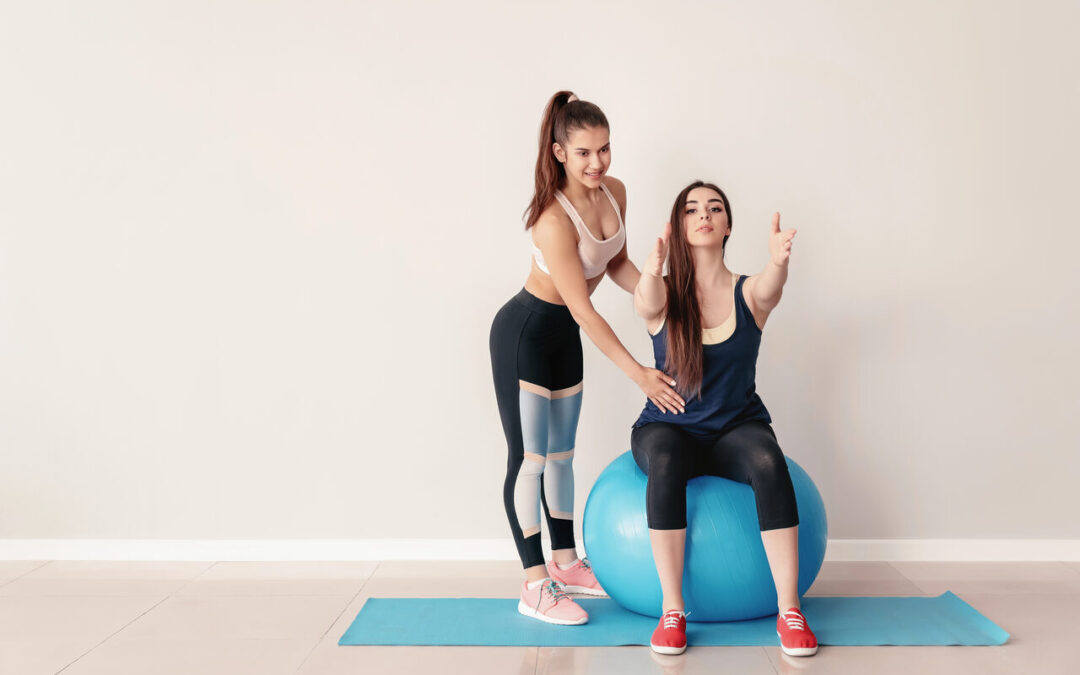Personal training has become an essential component in helping women achieve their fitness goals, whether it’s improving strength, shedding weight, or simply enhancing overall health. The benefits of personal training go beyond just the physical—women experience boosted confidence, improved mental well-being, and a sense of accomplishment. With a personal trainer’s guidance, every workout is tailored to meet specific fitness needs, making each session effective and engaging. In this blog, we’ll explore the key advantages of personal training for women, how it supports weight loss, and how frequently women should train to achieve optimal results.
Exploring the Benefits of Personal Training for Women
Personal training offers a wide range of benefits specifically designed to support women’s health and fitness goals. These benefits go beyond just physical improvements; they also extend to mental and emotional well-being.
- Personalized Workout Plans: One of the greatest advantages of personal training is the individualized approach. Every woman has different fitness goals, body types, and health considerations, so a one-size-fits-all workout isn’t effective. A personal trainer tailors your workout plan to your specific goals, whether it’s building strength, improving endurance, or toning specific areas of your body.
- Support and Motivation: Staying motivated on a fitness journey can be challenging. Personal trainers offer the accountability and encouragement needed to stay on track, helping to push past barriers and celebrate achievements. This consistent support can make a significant difference, especially during tough training sessions.
- Safe and Effective Exercise Techniques: Injury prevention is crucial in any fitness routine. A personal trainer ensures that each exercise is performed with proper form, reducing the risk of injury while maximizing the effectiveness of your workouts. They can also adjust exercises if you have any pre-existing conditions or limitations.
- Long-Term Health Benefits: Personal training isn’t just about short-term goals; it’s about building a sustainable and healthy lifestyle. Women who engage in regular personal training can enjoy benefits like improved cardiovascular health, stronger bones, enhanced flexibility, and better posture.
- Boosted Confidence: Achieving fitness goals can have a profound impact on self-confidence. Personal training helps women gain a sense of accomplishment as they hit milestones, improve their fitness levels, and see changes in their bodies. This boost in confidence can spill over into other areas of life as well.
Personal Training for Women: How it Helps With Weight Loss
Personal training is an effective tool for women who are looking to lose weight. By combining structured exercise programs with nutritional guidance, personal training offers a comprehensive approach to weight management. Trainers design personalized workout plans that typically include a mix of cardiovascular exercises, strength training, and high-intensity interval training (HIIT). These exercises help boost metabolism, increase calorie burn, and promote fat loss. Cardiovascular exercises such as running, cycling, or rowing are excellent for burning calories, while strength training builds lean muscle mass. Increased muscle mass helps raise the body’s metabolic rate, meaning that even at rest, the body burns more calories.
Another crucial aspect of personal training for weight loss is the focus on consistency and accountability. Many people struggle with maintaining a regular exercise routine on their own, and a personal trainer provides the motivation and structure necessary to stay on track. This ongoing guidance helps ensure that the workouts remain effective and progressively challenging. Moreover, personal trainers often provide nutrition advice, emphasizing the importance of a balanced diet in weight loss. Proper nutrition paired with regular exercise is key to achieving and maintaining weight loss goals.
Ultimately, personal training helps women stay motivated, track their progress, and maintain a balanced approach to exercise and nutrition, making it a powerful method for sustainable weight loss.
What to Expect in a Personal Training Session for Women
A personal training session is designed to provide women with a structured, goal-oriented workout experience. Each session is customized based on your fitness level, goals, and any specific areas you want to focus on, such as strength, endurance, or flexibility. Here’s what you can generally expect in a typical session:
- Initial Warm-Up: Every personal training session begins with a warm-up to get your body ready for the workout. This might include light cardio exercises like jogging or jumping jacks, as well as dynamic stretches to improve flexibility and reduce the risk of injury.
- Targeted Workouts: After warming up, your trainer will guide you through a series of exercises tailored to your goals. These may include a combination of strength training, cardio, balance exercises, and core work. Whether you’re focusing on toning, muscle building, or overall conditioning, each movement is designed to maximize your progress.
- Focus on Form and Technique: Throughout the session, your personal trainer will pay close attention to your form, ensuring that you’re performing each exercise correctly. This helps prevent injury and ensures that you’re getting the most out of each exercise.
- Cool Down and Stretching: The session typically concludes with a cool-down, which includes static stretching and slower-paced exercises to help your muscles recover and prevent stiffness.
Progress Tracking and Feedback: After the workout, your trainer may discuss your progress, providing feedback on your performance and adjusting your workout plan based on your goals. This ongoing evaluation helps keep you on track and ensures your workouts evolve as you improve.
Get Your Roar Back
Choosing a Personal Trainer: What to Look For
Choosing the right personal trainer is essential for achieving your fitness goals and ensuring a positive experience. Here are some key qualities women should look for when selecting a personal trainer:
- Certifications and Experience: It’s important to choose a personal trainer who is certified by a recognized organization and has experience working with clients who have similar goals to yours. Certifications ensure that your trainer has a solid understanding of exercise science, anatomy, and safe training practices.
- Communication Skills: A good personal trainer should be able to communicate instructions clearly and provide constructive feedback. They should also be approachable, listen to your concerns, and offer encouragement throughout your fitness journey.
- Adaptability: Every client is different, and a good trainer should be able to adapt workouts to suit your needs. Whether you have an injury, a specific fitness goal, or time constraints, a flexible trainer can make adjustments to ensure your program remains effective and safe.
- Positive Attitude and Motivation: Your trainer should be a source of motivation, pushing you to achieve your best while maintaining a positive and encouraging atmosphere. A trainer with a supportive attitude can help you stay focused and energized, especially on challenging days.
- Specialization: Depending on your fitness goals, it might be beneficial to work with a trainer who specializes in areas like strength training, weight loss, or athletic conditioning. If you have specific needs, such as postpartum recovery or injury rehabilitation, it’s important to find a trainer with relevant expertise.
How Often Should Women Have Personal Training Sessions?
The frequency of personal training sessions for women depends on several factors, including fitness goals, current fitness level, and how quickly results are desired.
For beginners, starting with two to three sessions per week is a great way to introduce the body to regular physical activity. This allows time to adjust to new exercises, build foundational strength, and prevent overtraining. As women become more comfortable with their fitness routine and begin to progress, the frequency of sessions can increase, often up to three or four times per week. At this stage, the focus shifts to more intensive workouts designed to accelerate results, whether it’s gaining muscle, improving cardiovascular endurance, or refining technique.
For women who have reached their fitness goals and are primarily interested in maintaining their current level of fitness, one to two sessions per week can be enough. These maintenance sessions are typically less intense and aim to keep the body strong and healthy while refining any areas that need attention.
For women who are pursuing high-intensity fitness goals, such as training for a competition or preparing for an event, more frequent sessions—sometimes up to five or six times per week—may be necessary. This higher frequency allows for a combination of strength training, conditioning, and skill work to help achieve ambitious goals. Ultimately, how often women should train depends on individual preferences and objectives, and a personal trainer can help tailor the schedule to meet those needs.
Complementing Personal Training: Healthy Lifestyle Habits
While personal training sessions can help you make significant progress, adopting healthy lifestyle habits outside of the gym will enhance your results. Here are a few lifestyle changes that can complement your training sessions:
- Balanced Nutrition: Proper nutrition is key to supporting your workouts and achieving your fitness goals. A diet rich in whole foods—such as lean proteins, vegetables, whole grains, and healthy fats—provides the energy and nutrients your body needs to perform well during training and recover afterward. Avoid processed foods and sugary snacks, which can hinder progress and cause energy crashes.
- Adequate Hydration: Staying hydrated is essential for optimal performance and recovery. Water helps regulate body temperature, lubricate joints, and transport nutrients. Aim to drink plenty of water throughout the day, especially before and after workouts, to prevent dehydration and improve your overall physical performance.
- Prioritize Rest and Recovery: Rest is just as important as your workouts. Allowing your muscles time to recover between sessions helps prevent burnout and reduces the risk of injury. Getting enough sleep each night—ideally 7 to 9 hours—also aids in muscle repair and recovery, while improving overall energy levels and mental focus.
- Consistency: Sticking to a consistent workout routine is key to seeing long-term results. Regular training, paired with healthy eating and recovery practices, will help you achieve your fitness goals more effectively. Consistency builds momentum and ensures that progress is made steadily over time.
- Stress Management: High stress levels can negatively impact your health and fitness progress. Incorporating stress management techniques such as mindfulness, meditation, yoga, or deep breathing can help you stay focused and mentally clear, leading to better results in your training sessions.
By adopting these healthy habits and staying committed to your fitness routine, you’ll not only enhance the effectiveness of your personal training sessions but also improve your overall well-being.
Your Path to Better Health Starts Today
Ready to take your fitness journey to the next level? Whether you’re aiming to lose weight, build strength, or improve your overall health, personalized training is key to achieving your goals effectively.
At Roar Physio | Wellness, our experienced trainers are dedicated to helping you reach your full potential with tailored workout plans and guidance. Contact us today to schedule your personal training session and start building a stronger, healthier, and more confident you!

